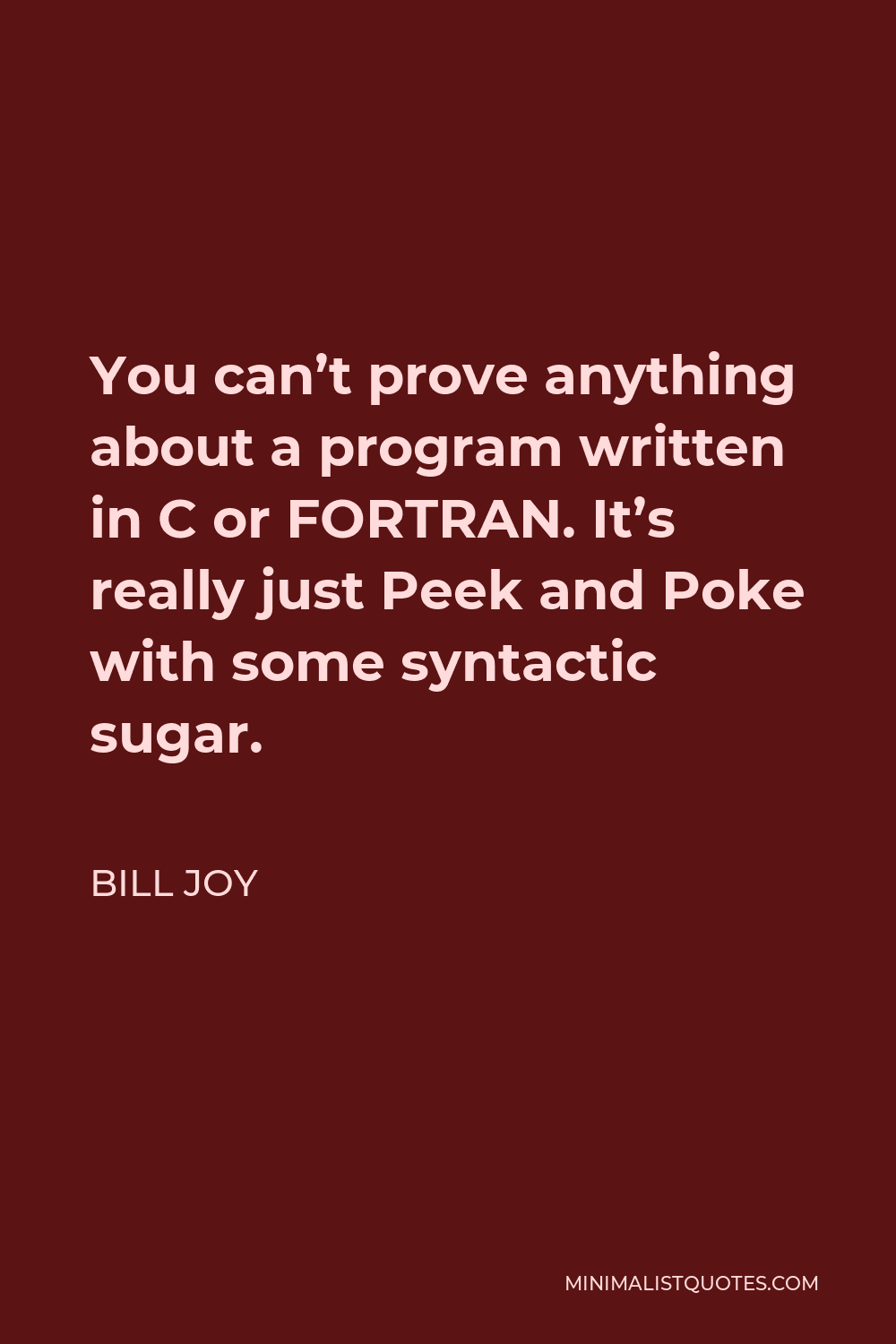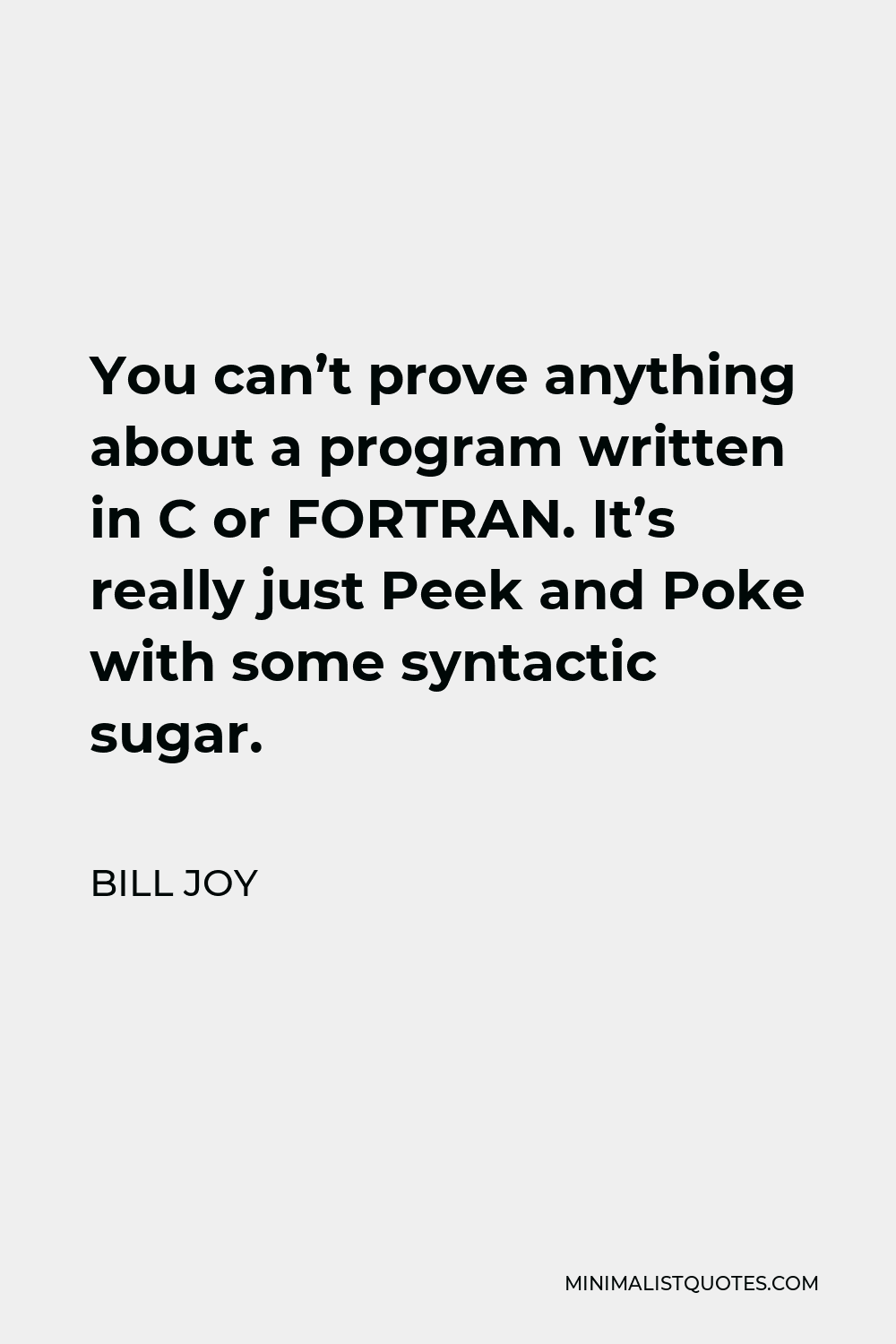I just don’t like to lose what’s in the window.
BILL JOYYou can’t prove anything about a program written in C or FORTRAN. It’s really just Peek and Poke with some syntactic sugar.
More Bill Joy Quotes
-





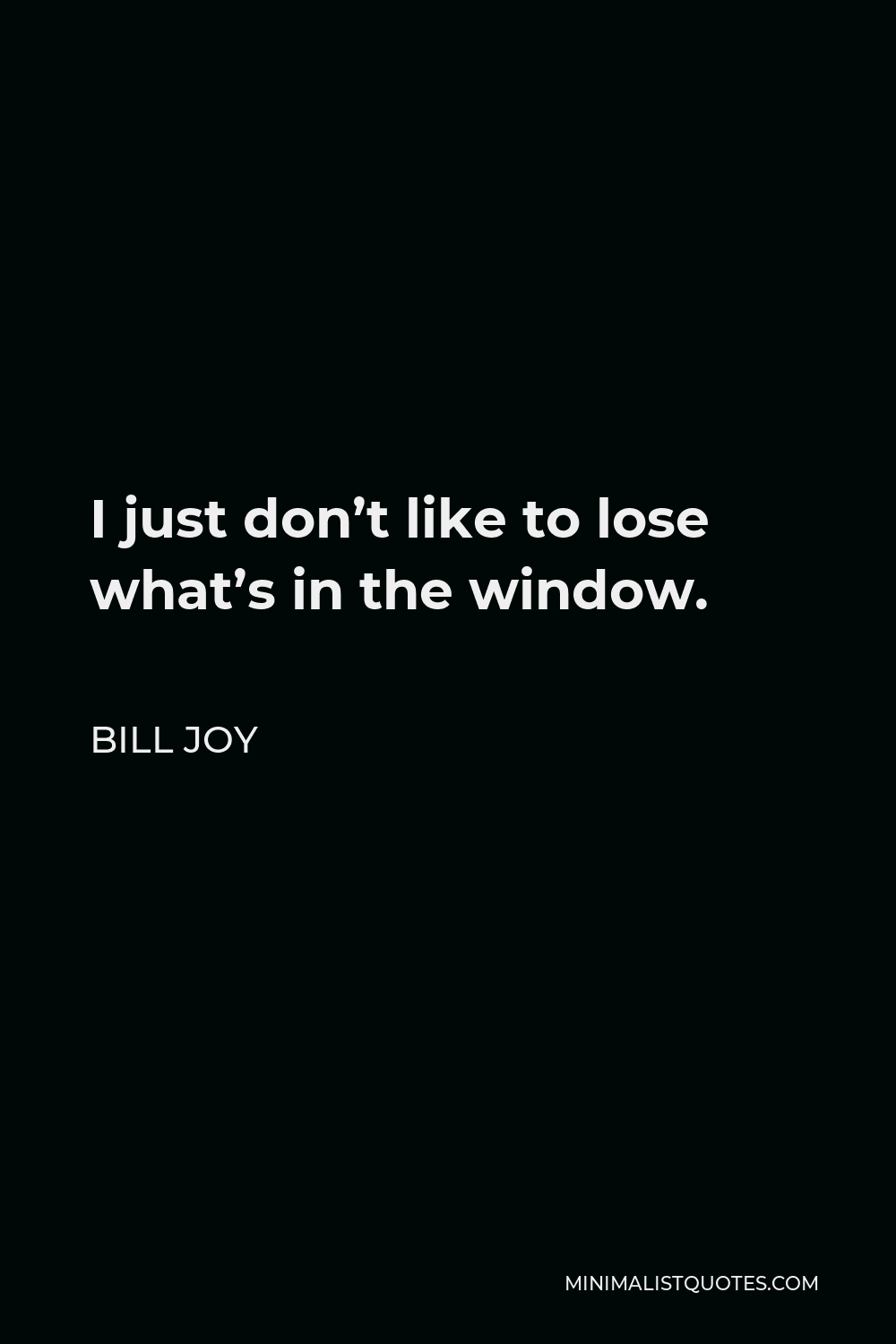
-





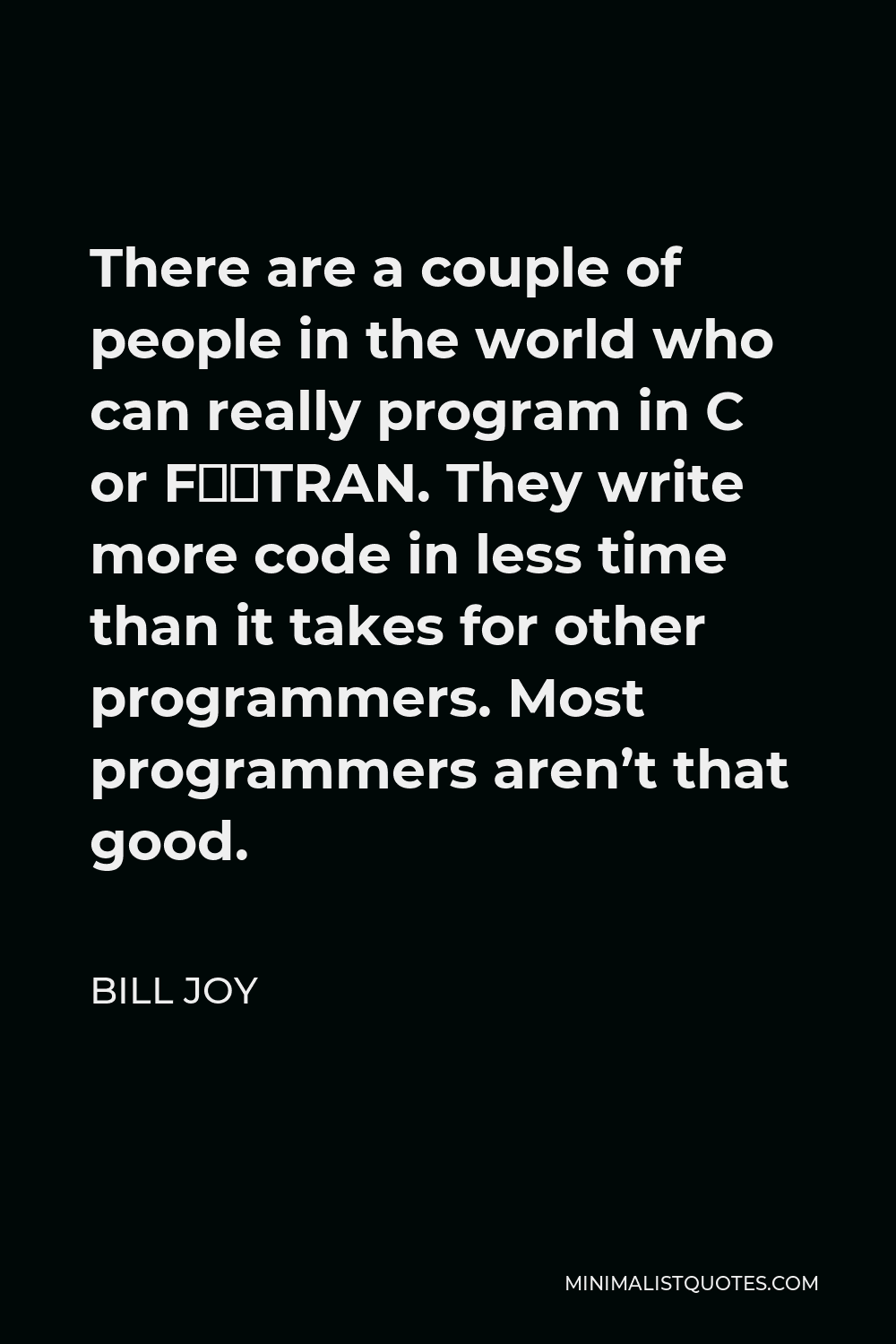
There are a couple of people in the world who can really program in C or FØRTRAN. They write more code in less time than it takes for other programmers. Most programmers aren’t that good.
BILL JOY -





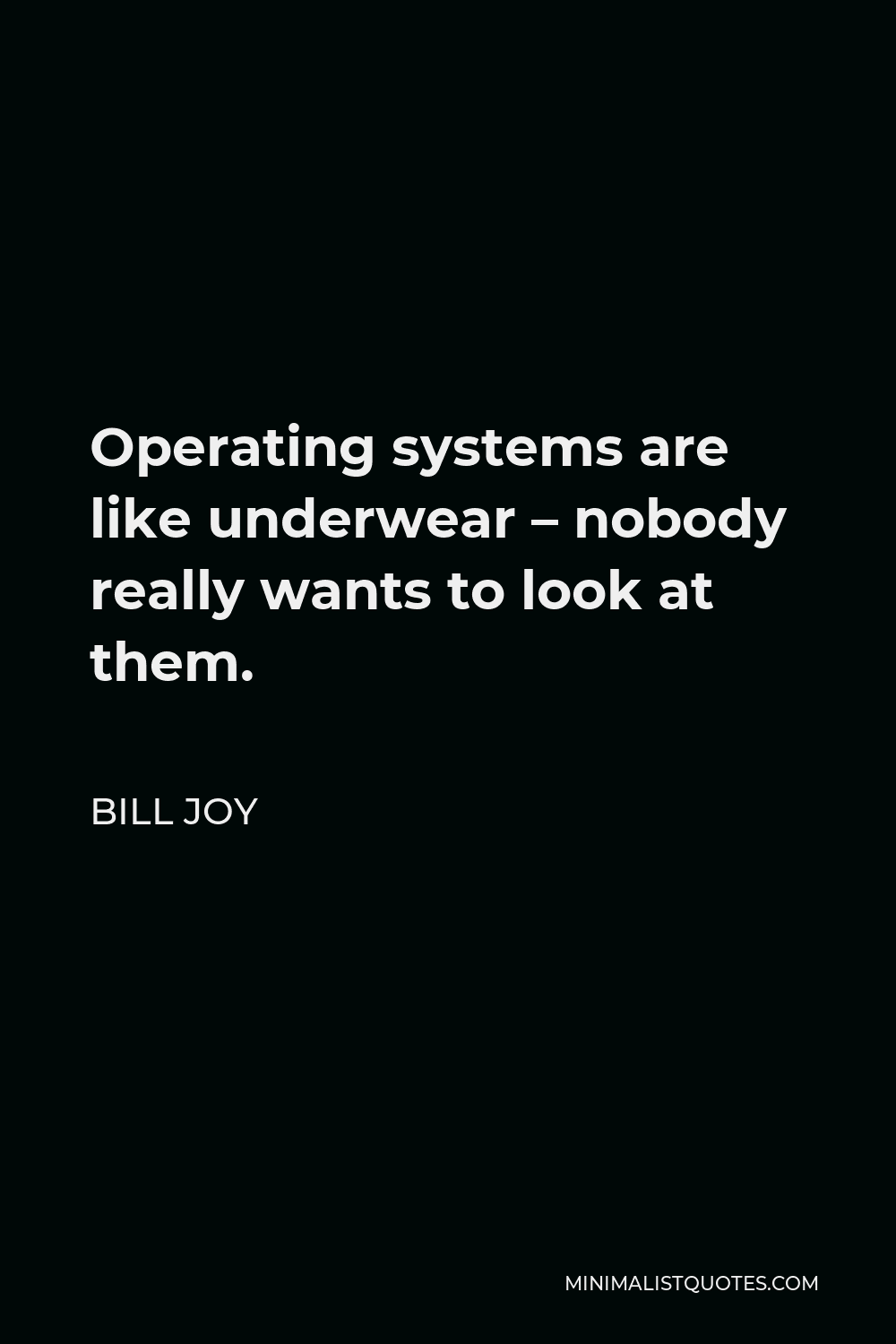
Operating systems are like underwear – nobody really wants to look at them.
BILL JOY -





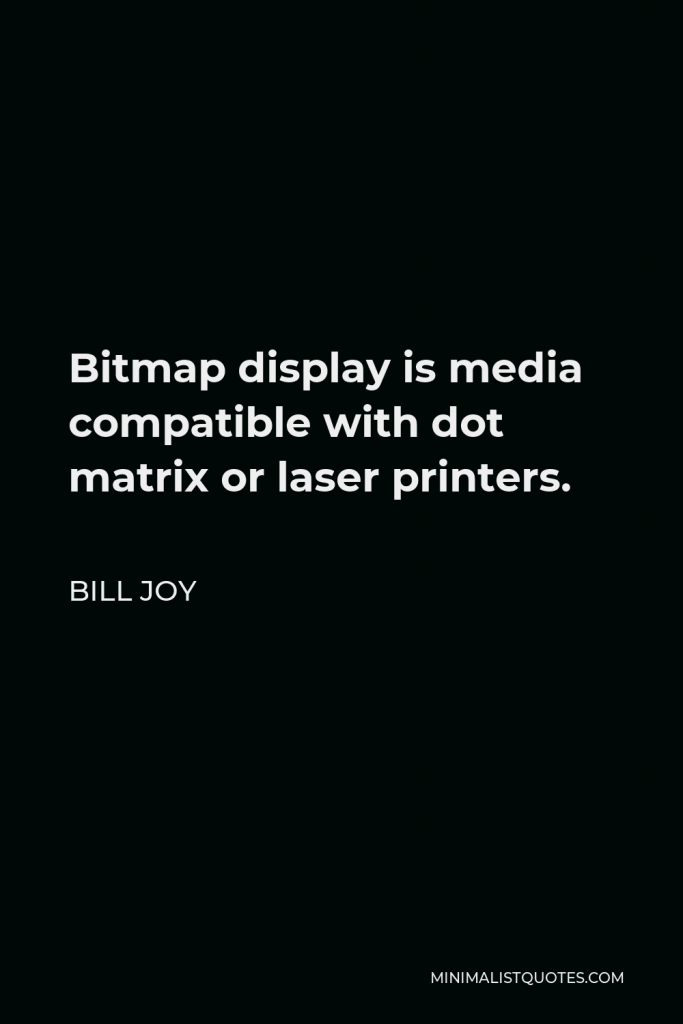

Bitmap display is media compatible with dot matrix or laser printers.
BILL JOY -





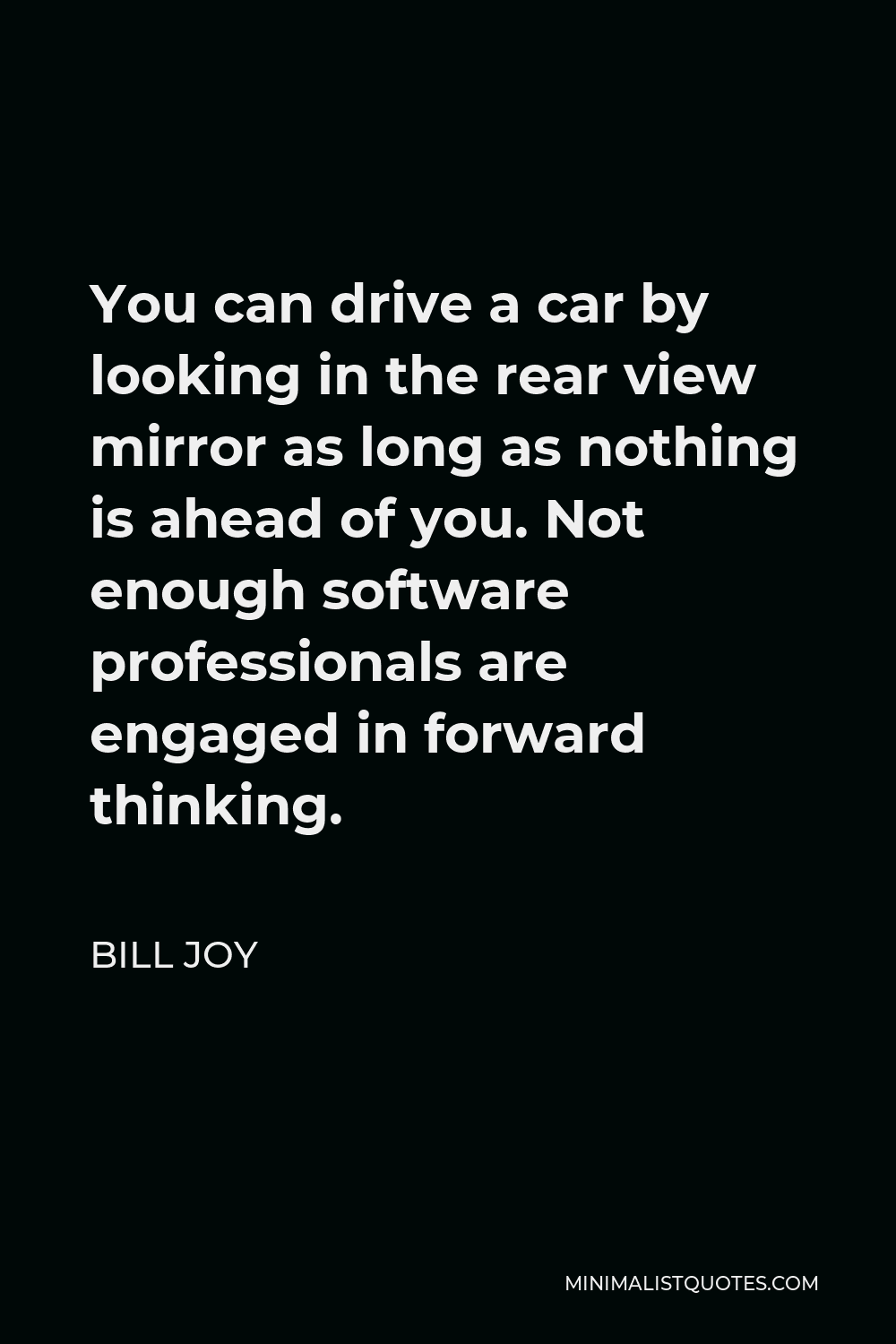
You can drive a car by looking in the rear view mirror as long as nothing is ahead of you. Not enough software professionals are engaged in forward thinking.
BILL JOY -





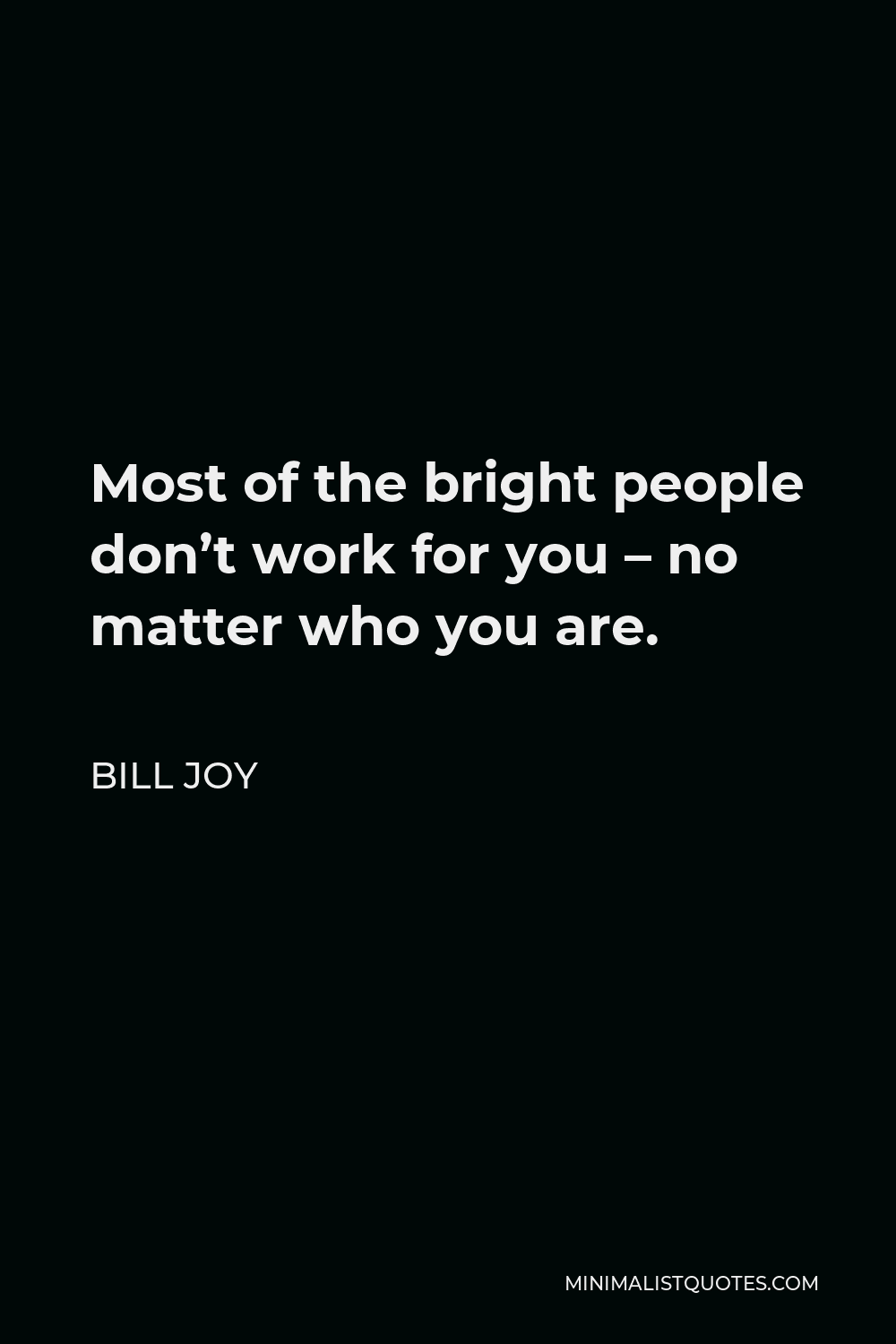
Most of the bright people don’t work for you – no matter who you are.
BILL JOY -





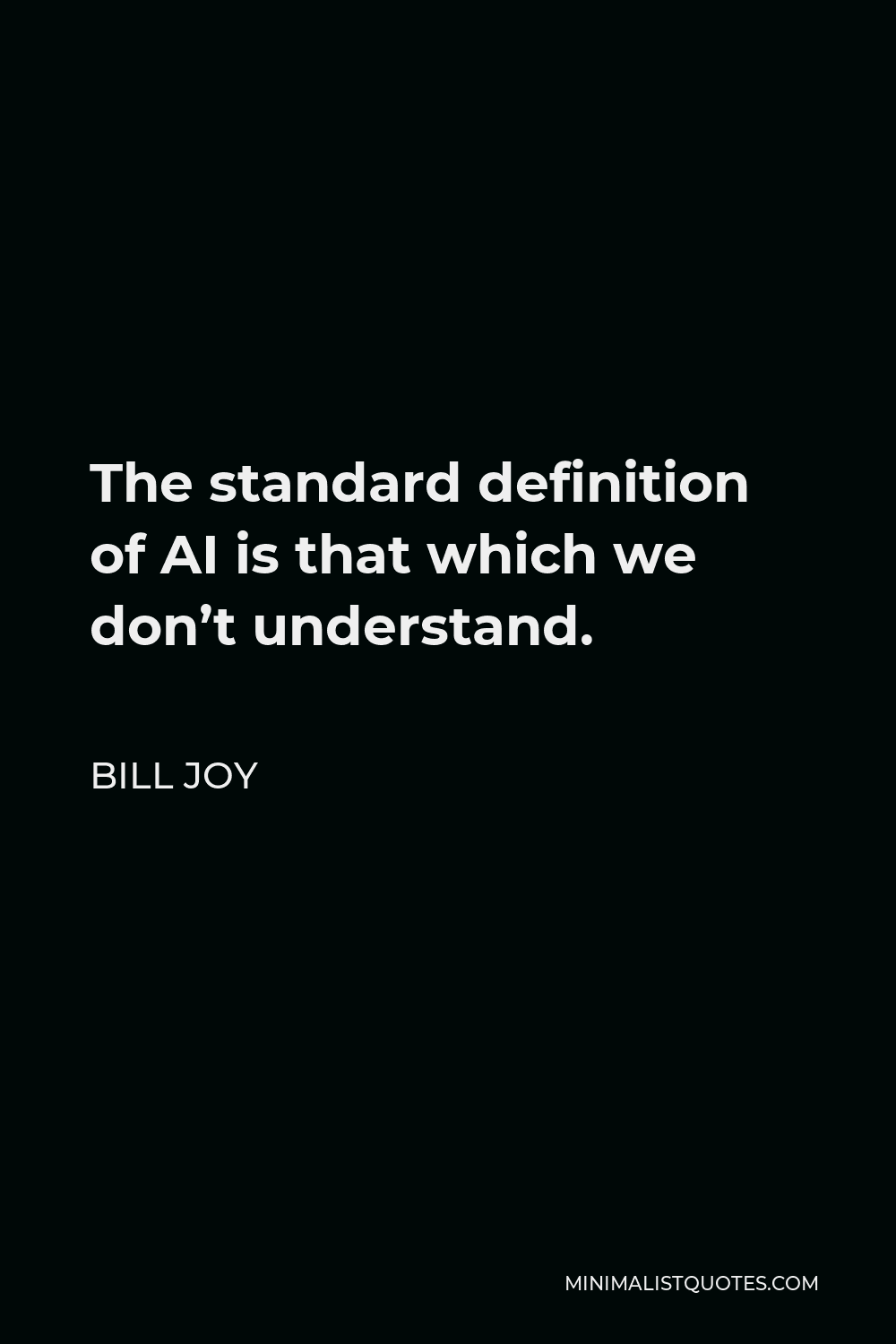
The standard definition of AI is that which we don’t understand.
BILL JOY -





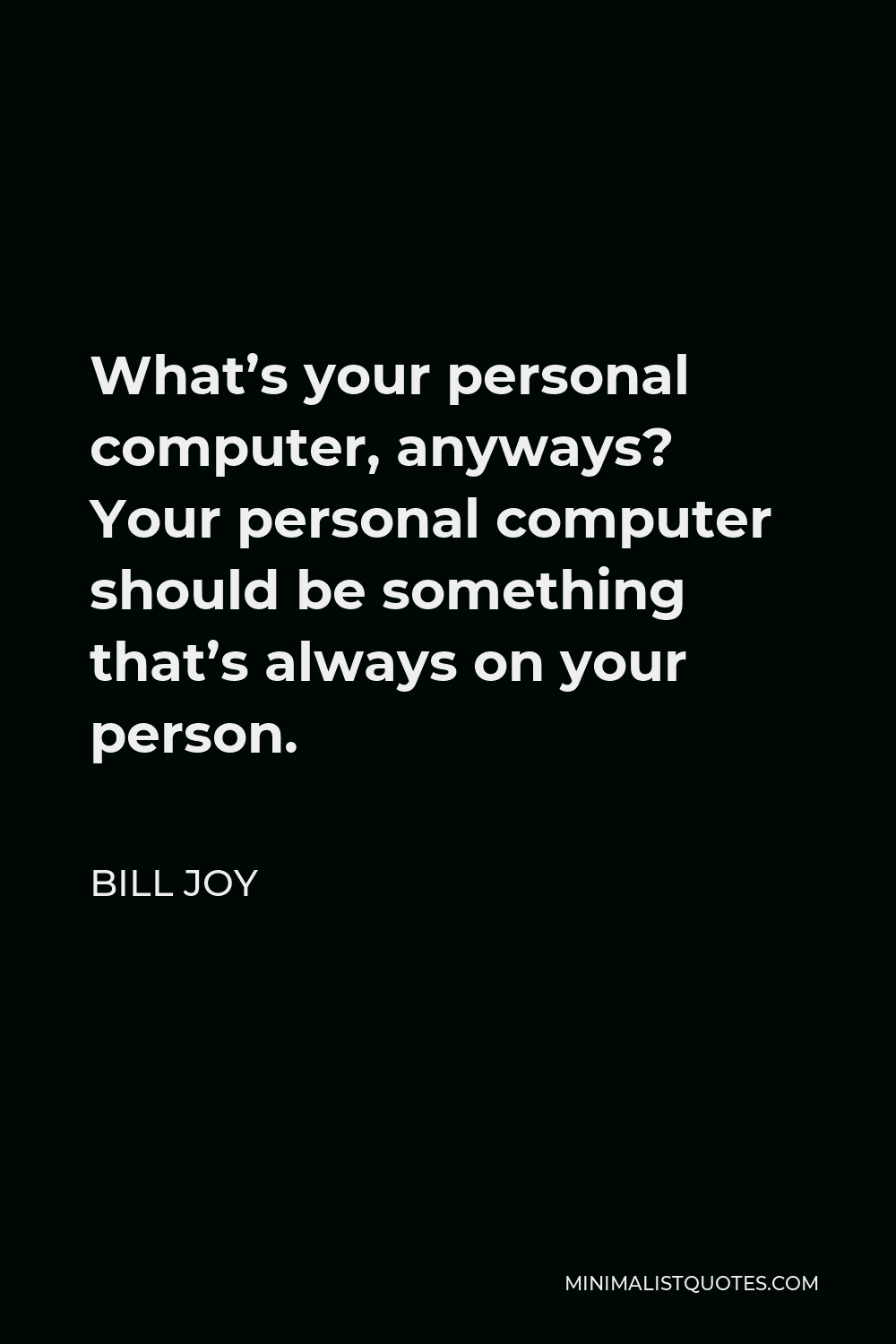
What’s your personal computer, anyways? Your personal computer should be something that’s always on your person.
BILL JOY -





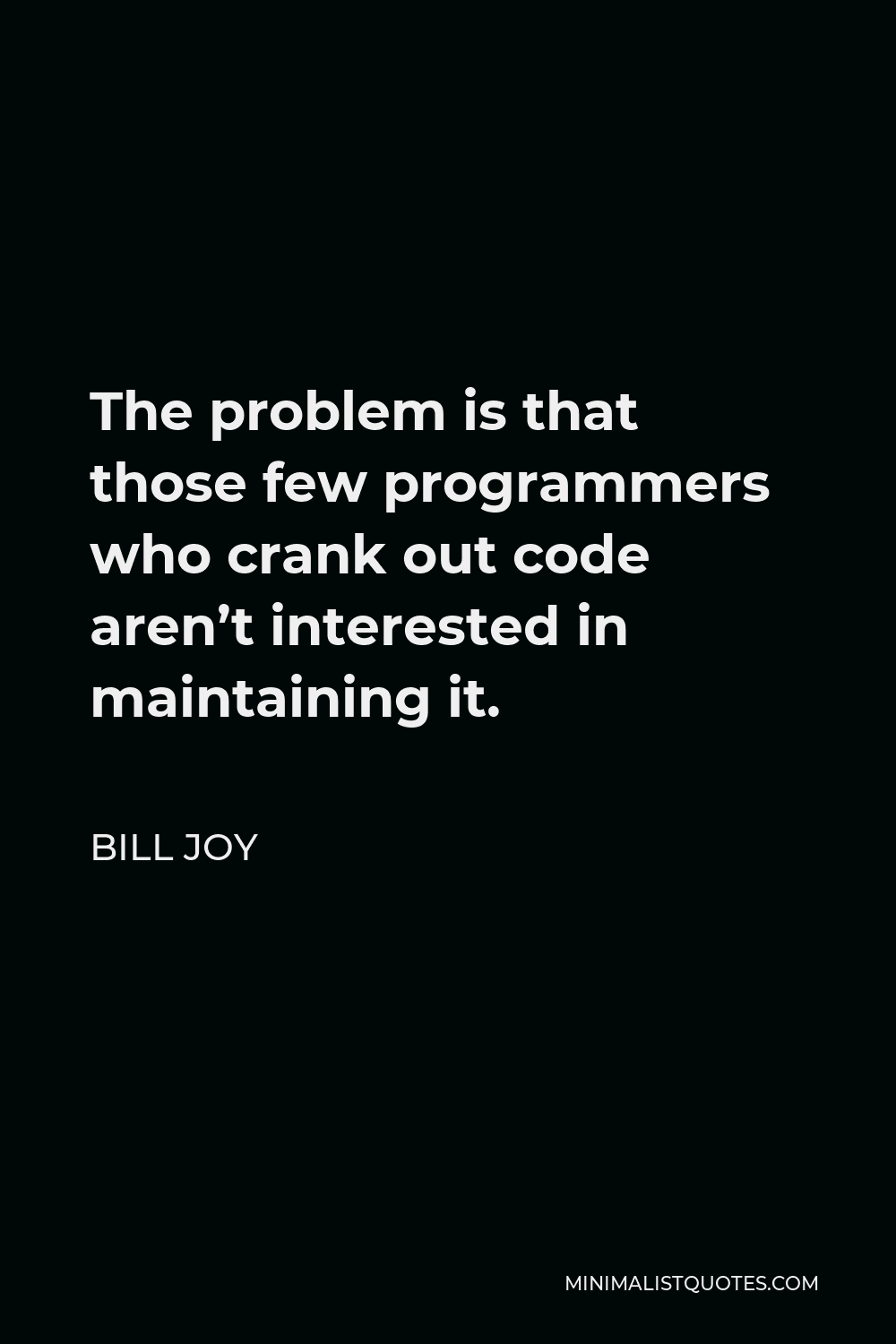
The problem is that those few programmers who crank out code aren’t interested in maintaining it.
BILL JOY -





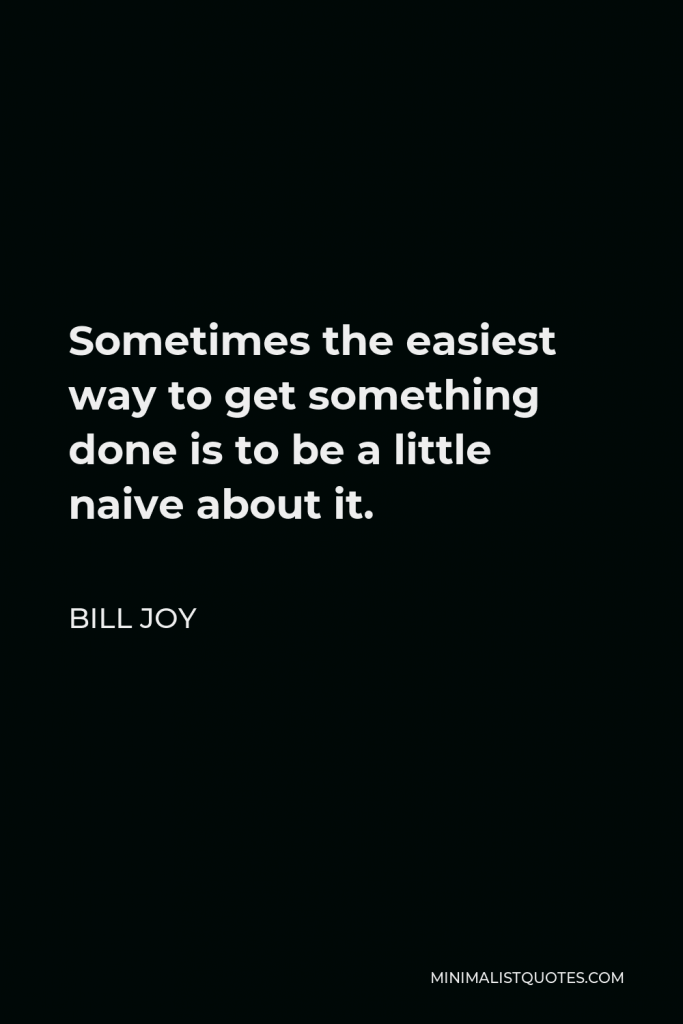

Sometimes the easiest way to get something done is to be a little naive about it.
BILL JOY -





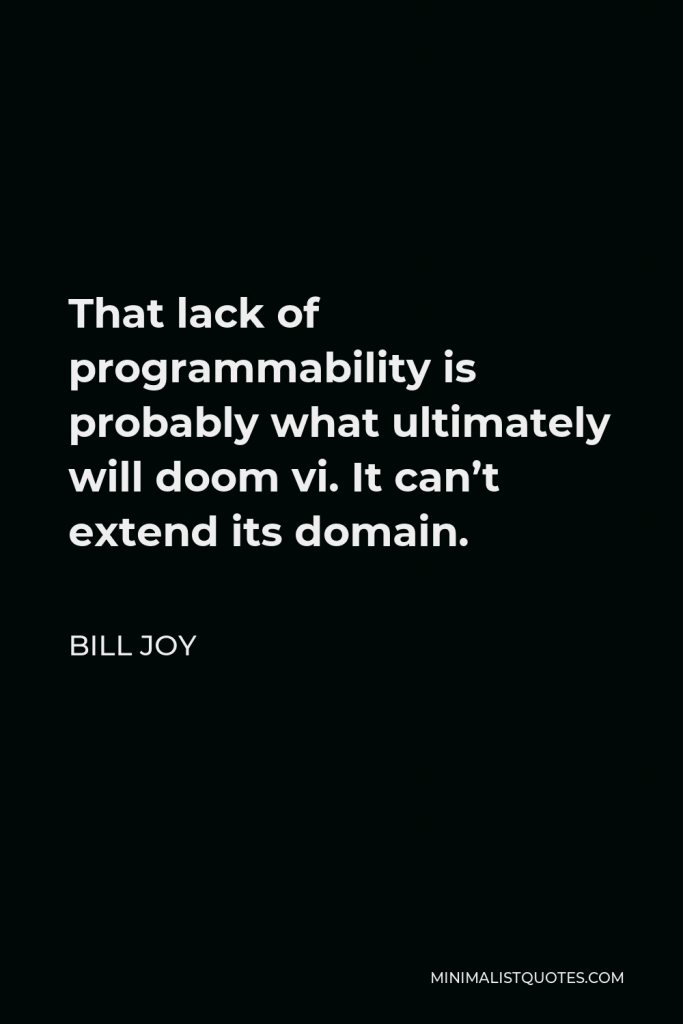

That lack of programmability is probably what ultimately will doom vi. It can’t extend its domain.
BILL JOY -





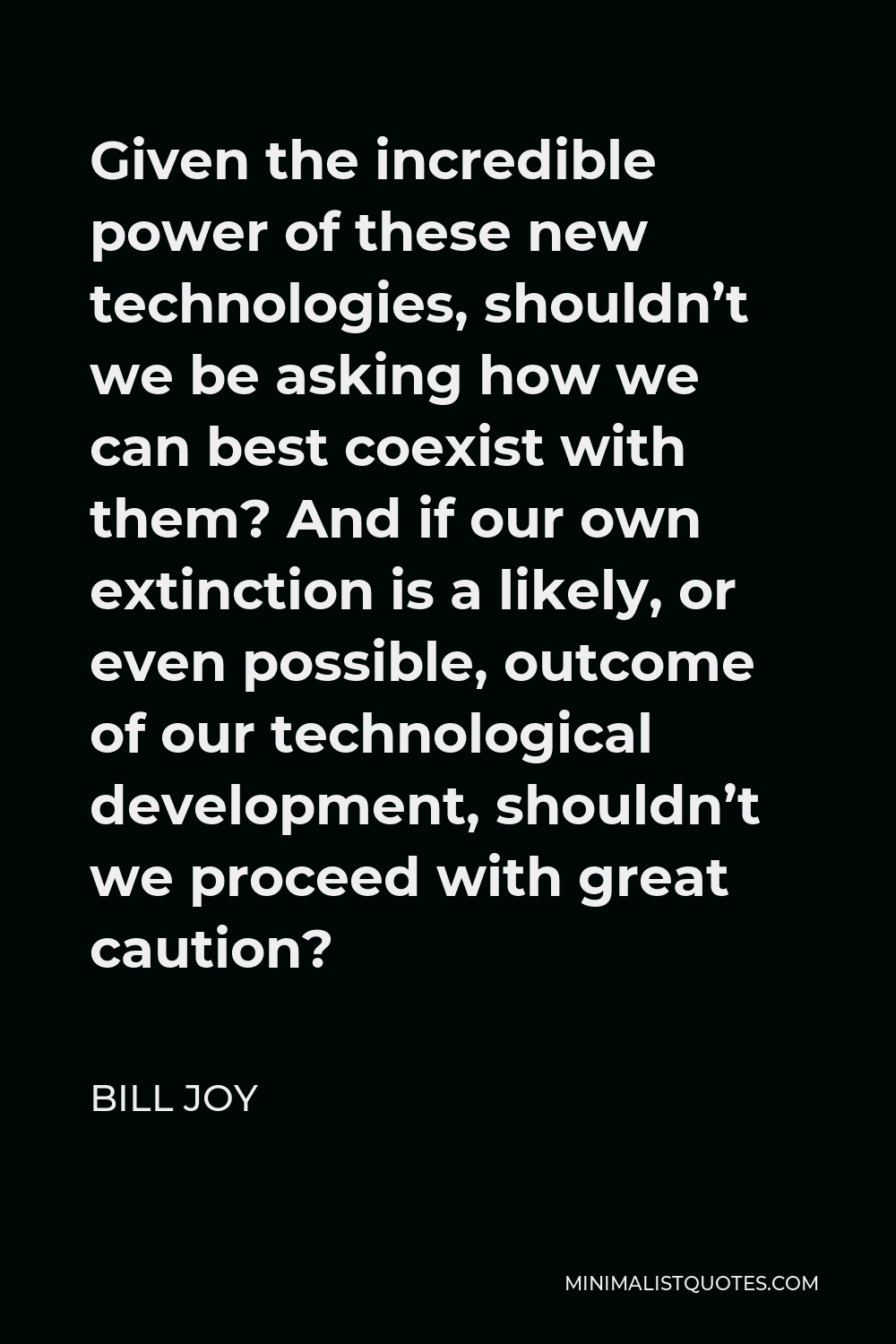
Given the incredible power of these new technologies, shouldn’t we be asking how we can best coexist with them? And if our own extinction is a likely, or even possible, outcome of our technological development, shouldn’t we proceed with great caution?
BILL JOY -





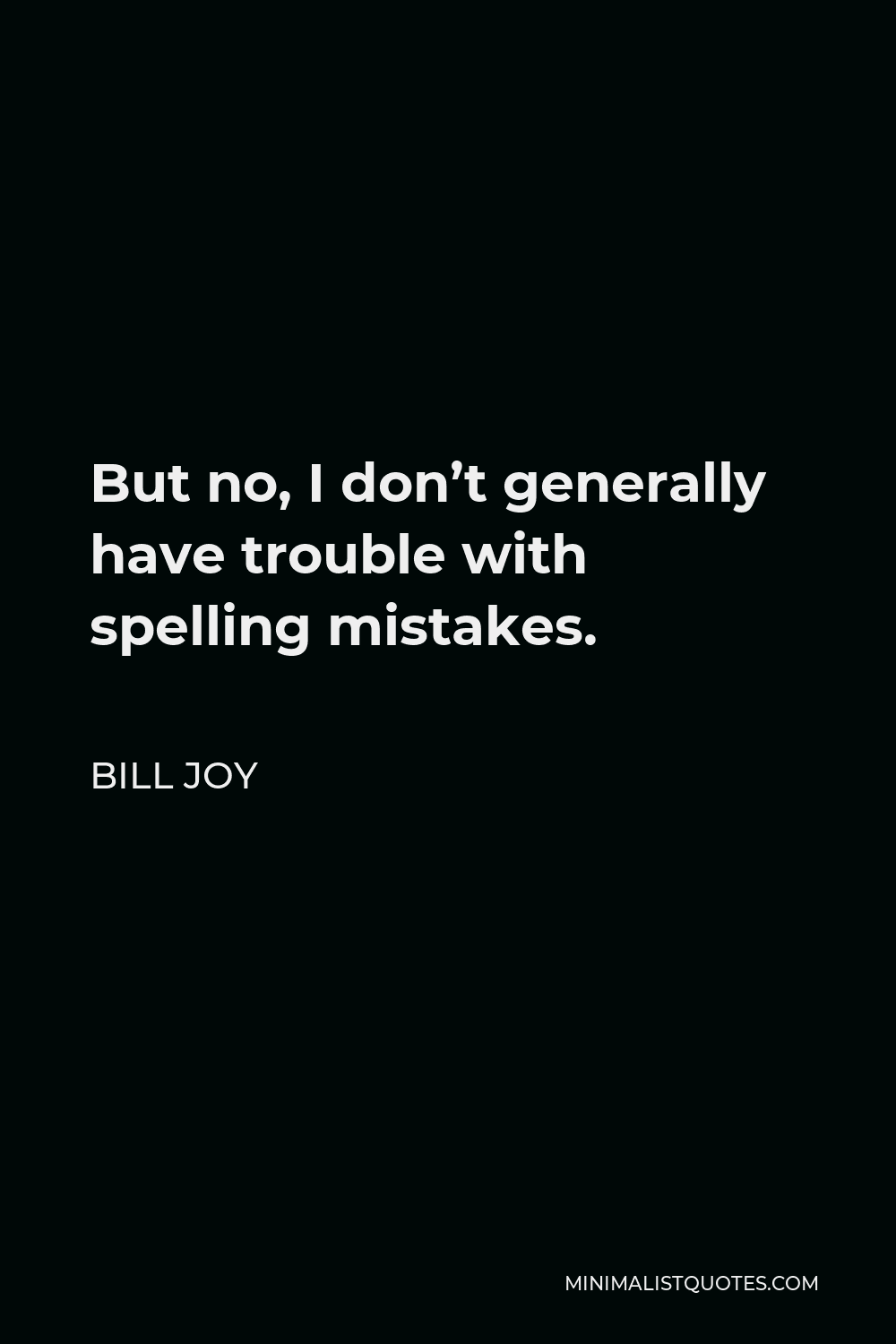
But no, I don’t generally have trouble with spelling mistakes.
BILL JOY -






Well, limbo is not a good place to be.
BILL JOY -





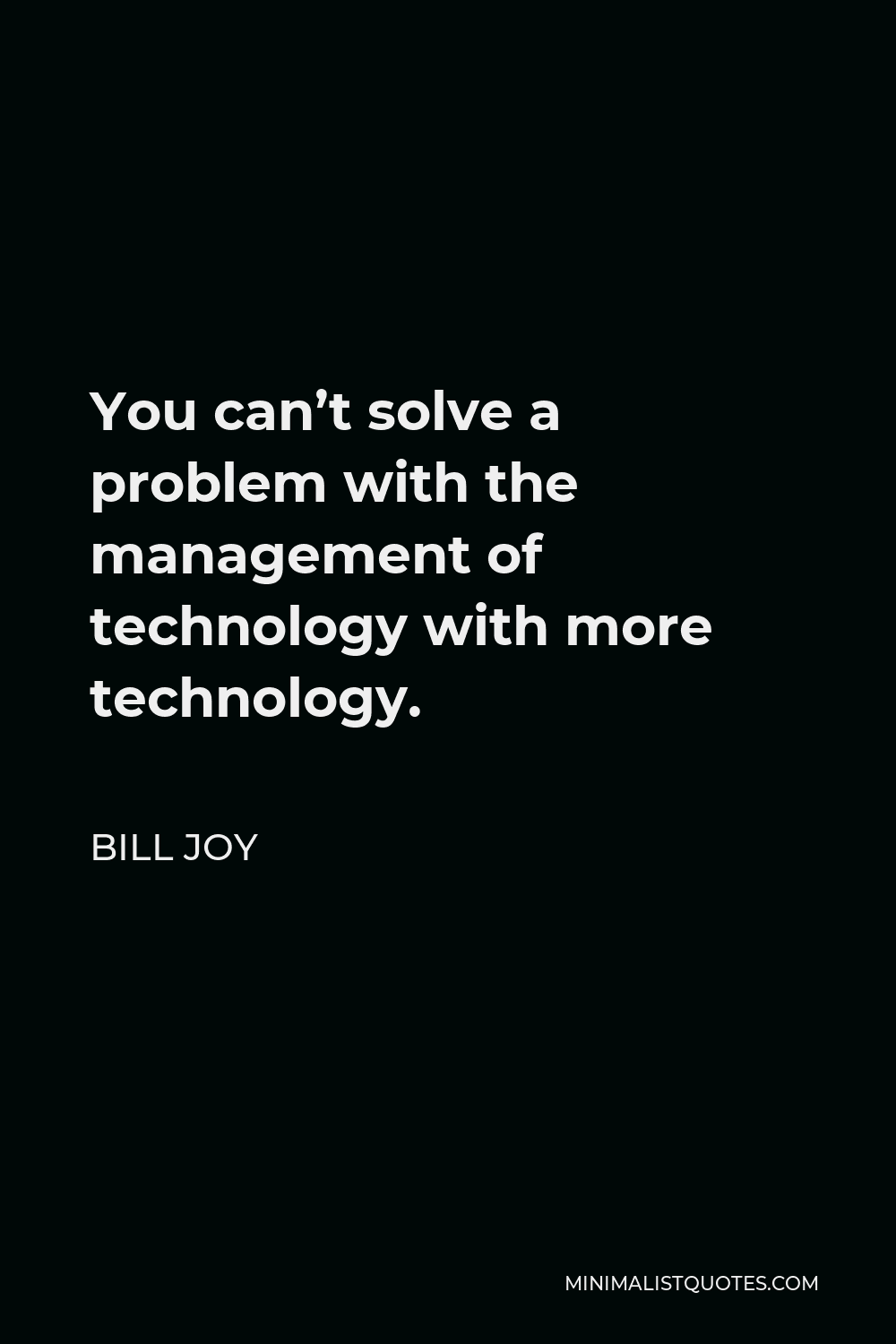
You can’t solve a problem with the management of technology with more technology.
BILL JOY -





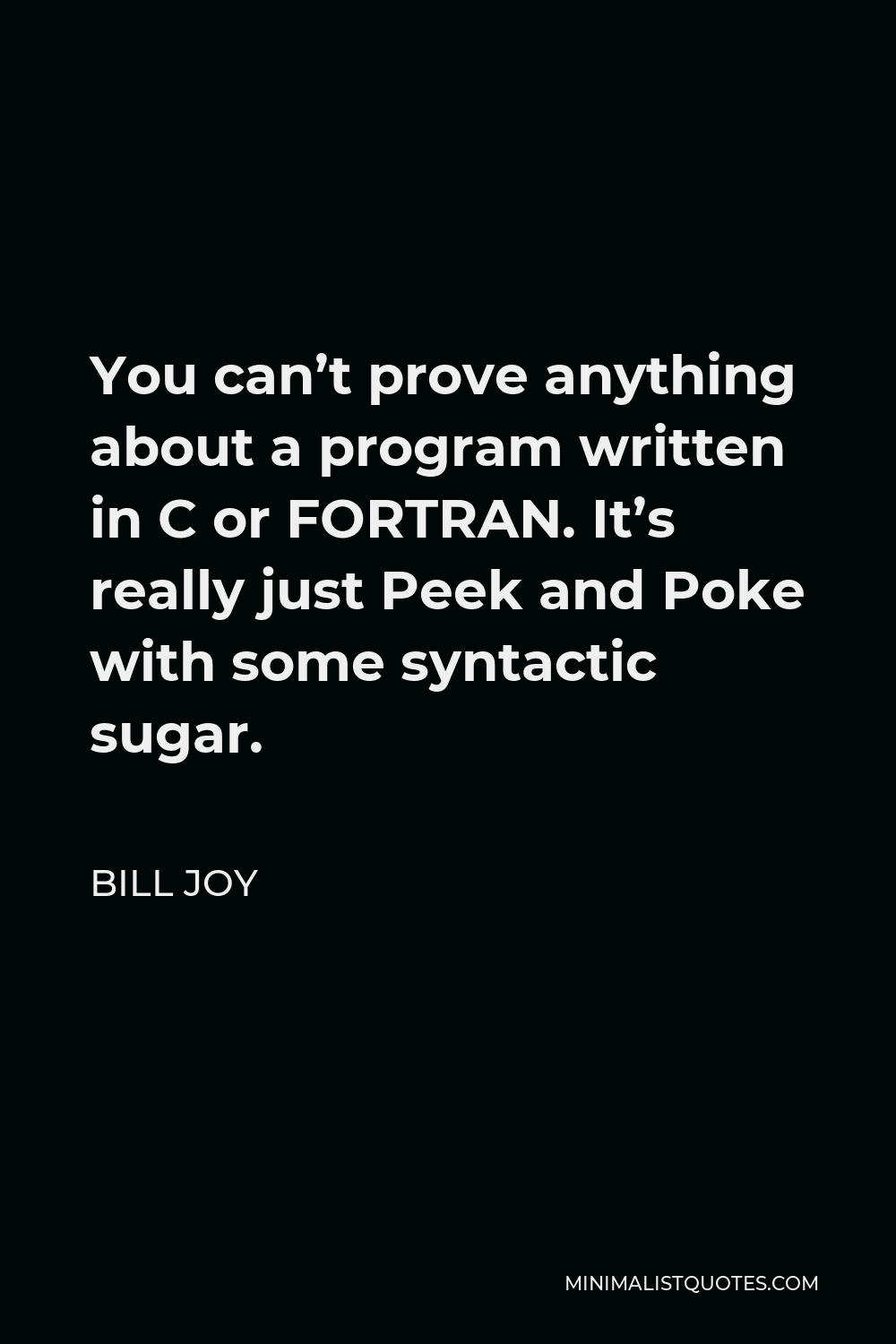
You can’t prove anything about a program written in C or FORTRAN. It’s really just Peek and Poke with some syntactic sugar.
BILL JOY


